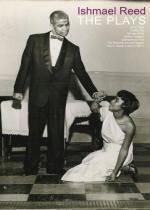|
This section contains 977 words (approx. 4 pages at 300 words per page) |

|
The American search for a usable past began with our first writers. American historians, cultural critics, and artists have repeatedly rewritten our history in response to evolving philosophies and social issues. And novelist, both serious and popular, have followed close behind, infusing fictional human relations with historical reality to cultivate—or to create—myths about our past. The old, tenacious forms of historical fiction either glamorize the past, reinforcing old myths of greatness, or revise history by exposing the lust, greed, despair, or irrationality of ages or men once considered stable, moral, and vital. But although contemporary novelists like Roth, Doctorow, Pynchon, Barth, and Ishmael Reed still mine and recast history, they have renewed and transformed the once-belittled historical novel. These novelists go beyond mere revisionism, questioning the possibility of historical understanding, rejecting the limits of historical reality and even of verisimilitude, exposing the irrelevance of both revering...
|
This section contains 977 words (approx. 4 pages at 300 words per page) |

|


